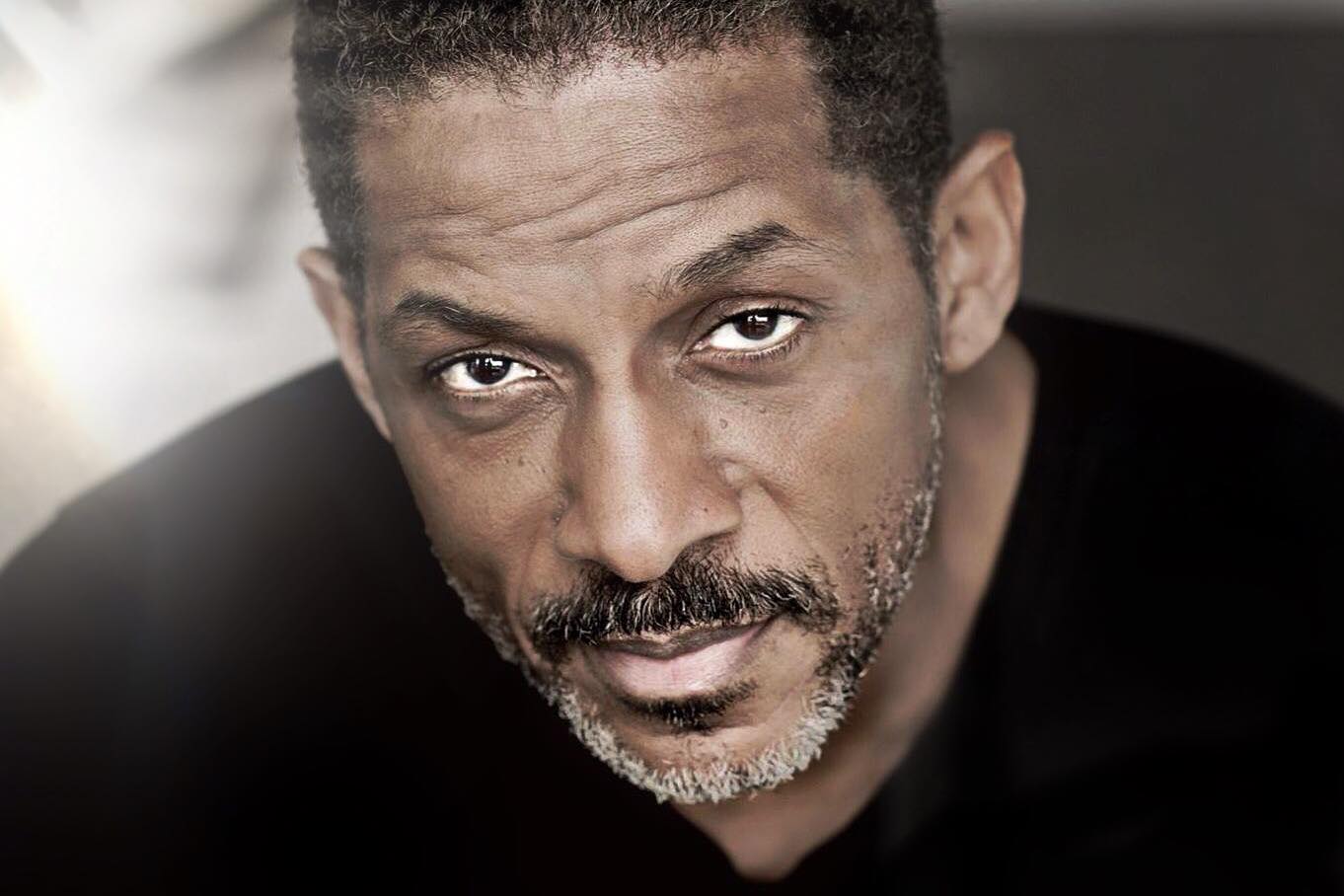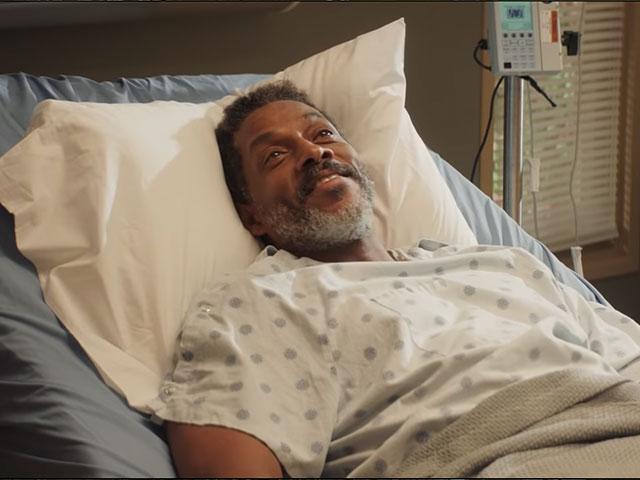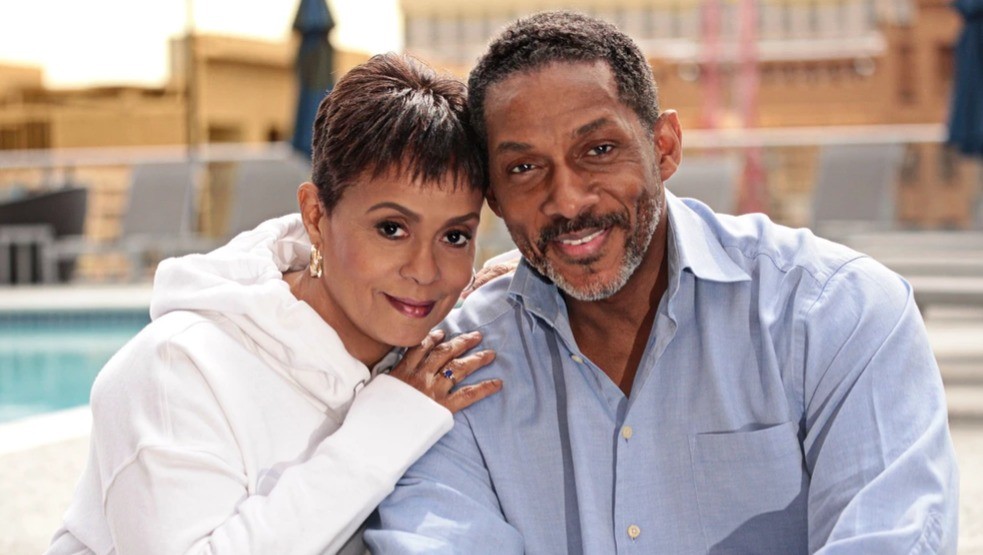 By Jacob Sahms
By Jacob Sahms
Halfway through the twentieth century, Cameron Arnett’s mother migrated from Haiti to New York. A few years later, she sent for Arnett’s father to join her in Brooklyn, New York; soon after, three of the Arnetts’ six children, including Cameron, would join them. Brooklyn, Long Island, New York City – they all fed the young Haitian as a child. But the way that faith was instilled in him, and the way he came to America speaking French and Creole, and not English, impacted his story early on in the way he saw race and faith in America.
“When I talk to people, they get shocked at my stance,” Arnett explained over Zoom this week, “because they don’t understand the mindset of where I come from. I only saw myself as man – I came from a country where everyone looked like me. When I came here, I didn’t speak English, only French and Creole. I didn’t understand the language that was being spoken, only the actions I saw. So when I watched TV and I would see the marches going on, people are clapping and roaring, great speeches being made, I thought this must be the president! It was only years later in school that I found out the man I had been watching was Martin Luther King Jr.”
“I had to go to school to find out I was Black, that I couldn’t do certain things in America, that I couldn’t be the president. I had to go and be indoctrinated in the fact that as a “Black person” there were different sets of rules.”
 The actor graduated from the University of Miami, but he continued to pursue justice, even when arriving as an actor in Hollywood, earning spots on shows like Miami Vice, China Beach, Star Trek the Next Generation, and others. But when Hollywood’s expectations pushed back against what he knew to be true about himself and his faith, he turned down roles and set out on a different path, the path of “partial body nudity.” Years later, he’s now carved out a role in mainstream Christian films like Overcomer, I Still Believe, and others, while also using his platform to share his views on God and the pursuit of justice, as a Christian, an actor, and a “Black” man, as they say. “I’m for justice,” Arnett explains carefully, “whether it’s Hollywood acting or Christians acting. Everything for me is about Jesus, who God is and what He wants. None of this is what we decided to do but what God wants us to do. Only in having the mind of Christ, can I be who I’m supposed to be.”
The actor graduated from the University of Miami, but he continued to pursue justice, even when arriving as an actor in Hollywood, earning spots on shows like Miami Vice, China Beach, Star Trek the Next Generation, and others. But when Hollywood’s expectations pushed back against what he knew to be true about himself and his faith, he turned down roles and set out on a different path, the path of “partial body nudity.” Years later, he’s now carved out a role in mainstream Christian films like Overcomer, I Still Believe, and others, while also using his platform to share his views on God and the pursuit of justice, as a Christian, an actor, and a “Black” man, as they say. “I’m for justice,” Arnett explains carefully, “whether it’s Hollywood acting or Christians acting. Everything for me is about Jesus, who God is and what He wants. None of this is what we decided to do but what God wants us to do. Only in having the mind of Christ, can I be who I’m supposed to be.”
“There was a time when I was in Hollywood when Camy and Cameron were two different people,” he explained. “Since becoming one with Christ, they have become the same person. I believe that integrity and righteousness and holiness and character – all of these things we are in Christ, come first.”
While Hollywood can be a culture shock, where roles for people of color aren’t written as stars as widely as for white people, Arnett says he’s thankful for filmmakers like Alex and Stephen Kendrick, and Andrew and Jon Erwin and Kevin Downes, Christians filmmakers who are doing their part to make things different by showing people, not just talking about it. He shares, chuckling, “War Room – a movie about prayer with nothing but black people becomes the number one film in the nation! You know that’s God. But he used three white men who put it on screen and fought for it. You go to Sony and you know that they must have had to fight for it because of the prevailing atmosphere of things in the background (films with Black people don’t sell). I am so grateful for these godly men at the helm now of Christian filmmaking.”
Arnett flows quickly into an explanation of how showing and telling is exampled in Scripture, in the story of Laban and Jacob from Genesis 30 and 31, where Jacob uses some ingenious breeding techniques to wean away Laban’s heard to his own. “You have to show people what you want them to be and they will become what they see. For me, I look at Scripture and I see Jesus – no matter what you’re reading, you should also be reading one of the Gospels and see Jesus walking through the pages – when you look into the law of liberty, you will be free. I look at the church – apostles, prophets, evangelists, pastors, teachers – whose purpose is to help followers become the full measure and stature of Christ. I don’t expect or allow or try to build anything in myself other than what I see Christ to be. When people see you in movies and they have their perspective of your celebrity — they expect something. My everyday life matters more, and it impacts what I choose to portray on camera. What you see is what you see, what you focus on, what is shown to you on a regular basis, is what you become.”
 For the record, Arnett has a strong teaching element to him, but he’d rather show than tell. He recounts that he took his Kentucky-born, Atlanta-based wife to Haiti on a missionary trip. “It’s a culture shock, seeing exactly what Haiti is like. I promised I’d love Jesus, love her, love her son, and only do what God tells me to do when we were married. Seeing the Third World for the first time, military guys on the tarmac with assault rifles, people bathing on the streets … It just showed how God brought me to the United States, how living the kind of life He has afforded me is worlds away. When people talk about being poor here, people in Haiti are making $209 a year. People don’t understand the Third World mindset. It’s my prayer that America never has to see that, but we’re making decisions that are heading us to a cataclysmic kind of atmosphere. There’s civil war status in some cities in the country. Things you saw on the news for years in other countries and I pray America doesn’t stay stuck here.”
For the record, Arnett has a strong teaching element to him, but he’d rather show than tell. He recounts that he took his Kentucky-born, Atlanta-based wife to Haiti on a missionary trip. “It’s a culture shock, seeing exactly what Haiti is like. I promised I’d love Jesus, love her, love her son, and only do what God tells me to do when we were married. Seeing the Third World for the first time, military guys on the tarmac with assault rifles, people bathing on the streets … It just showed how God brought me to the United States, how living the kind of life He has afforded me is worlds away. When people talk about being poor here, people in Haiti are making $209 a year. People don’t understand the Third World mindset. It’s my prayer that America never has to see that, but we’re making decisions that are heading us to a cataclysmic kind of atmosphere. There’s civil war status in some cities in the country. Things you saw on the news for years in other countries and I pray America doesn’t stay stuck here.”
Unfortunately, issues of race and politics have divided the church in America, an issue that Arnett has taken to social media to confront. Well, not so much to confront as to shine a light on, to share a different perspective in hopes of helping his brothers and sisters in the church interact with the real Jesus of Scripture.
“The reason why the church can’t see [these issues] is because the church hasn’t generally been able to see the real Jesus. Because you don’t know the real Jesus – he’s total but also multi-faceted Jesus. We have compartmentalized him – and taken out the parts that are controversial or don’t fit what we think, and don’t add to our ease. The church has made an upper class Jesus who keeps the money good. The Jesus I read in Scripture – ‘what do I require of you? Do justice, love mercy, walk humbly before God.’ [The prophet] Amos says, ‘I don’t want to hear about your singing and sacrifices – I want justice to flow like a river.’ I want righteousness to be your lifestyle. It doesn’t allow us to do what we want.”
Arnett points out that Jesus was neither Democrat or Republican, but that both parties get things right and get things wrong. “What’s right about the Republicans, He is. What’s right about the Democrats, He is. Jesus is for the kingdom and its King. Sometimes, there’s no room for conservatives to move in the way of mercy or compassion, or, on the other hand, for liberal, there’s an “everything goes or is allowable” perspective. Jesus loved everyone and receives everyone but doesn’t leave them the same. He tells them that he doesn’t condemn them but he tells them to go and sin no more. For some conservatives compassion has become to be seen as Marxist; not being able to see the difference between a statement of truth “Black lives matter” and a BLM socialist movement agenda that has nothing to do with Black lives or Christ. And with some liberals, if you don’t accept the false associations of the entire BLM movement, it also means you are against the statement of truth. We’ve lost contact and wisdom with the mind of Christ. It is only when the mind of Christ shows up that we can see the difference between Jesus and the Pharisees, in us and in others. This is why we’re still trying to catch up as the church; this is why we can’t keep up. It doesn’t and will not get any better until the real Jesus is formed in us.”
Arnett will continue to share the good news of the gospel, but he recognizes that it’s an uphill battle that won’t be fully completed until Jesus returns. He points out that Noah was sent out to save the world and only achieved getting eight people on the boat; he says, “The animals had more sense.” Turning to the New Testament, he points out that in the Parable of the Sower, Jesus deals with there are four kinds of ground but only one is good. Citing the Parable of the Sheep and the Goats, he says, “Why do you call me Lord? I never knew you.” He says it’s because we lack reverence for God and therefore allow Him to work through us, but disallow Him from us being His masterpiece work.
“It’s so easy to brush off. We need the people who do understand, to speak. It’s the knowledge of the complacency and the lack of understanding about the urgency of dedication that is needed. People who believe in Jesus and in treating people like we’re loved; those people need to up speak up….Jesus upped the ante. ‘Love them as I have loved you.’ Getting us together, to be vocal and unified public love together. When they see Black men and White men and Asian men and Hispanic men and indigenous walking together in Christ, then they can become what they see. There aren’t enough of us being that.”
On a week when the world mourns the loss of Chadwick Boseman, the man who represented Black Panther and Jackie Robinson, Arnett wants to continue to show dignity for people of color and people in general. He’s constantly reminding others that it’s only by the grace of God that he has the life he does, and he’s compelled to share with others, personally, on social media, when speaking, or acting.
“The reason I take the time to spend so much time on Facebook is because I can take on the meat of what is going on in society,” Arnett shares, demonstratively. “In my perspective, MLK was always my buddy, my mentor. When I see MLK I see someone who fought for mankind, he fought for what is right. There is a ministry God gave to all of us — the ministry of reconciliation, and that is what I am about.”
“I’m not trying to make my point, I’m trying to reconcile with my brother or sister. Overcomer is about our identity – with the ways of God and the truths of God. I don’t have an opinion but I have a Lord or a Master. I’ve always tried to reconcile people back to God’s perspective. That’s the easy thing because it’s the right thing. I don’t have another way.”
Not everyone gets it though, even friends. “I was speaking to a pastor friend of mine, who preaches on forgiveness, which is right, which is good. But I said to him, ‘You do a great work on forgiveness and it’s right, good, and wonderful. However, no one ever speaks to the oppressor of repentance though. Why don’t I speak to repentance and you speak to forgiveness?’ He said, ‘Nope, that’s not what I do.’ There’s pushback from telling the oppressor they need to repent. That is considered negative, controversial, and divisive. That would bring the house of cards down. That would bring accountability and responsibility, and would have to be acknowledged by the offenders. But, that would also bring a salvation to the soul of America.”
“People may not see themselves as racist in mind or deliberateness but they may be in instinctual, systemic ways. Some people don’t want to hear about systemic racism, or white privilege. I’ve lost friends, people who don’t want to listen. I had a white gentleman call me after Ferguson and start to tell me what it was like to be a black man in America. How do you reconcile that? I can’t walk up and tell a woman what having a baby is like, because I’m a man. That would mean I’m starting the conversation wrong. But sometimes, the person doesn’t really want to listen.”
Calling his perspective a continuation of King’s beliefs, Arnett fully understands that not everyone will appreciate what he has to say, but that when following God, the right thing is often a hard thing to say. “When things get controversial or hard or divisive in the church, we pull back because we’re getting bombarded and attacked, and because we refuse to melt into him and say the hard thing the right way,” Arnett proposed. “You can say ‘no’ as soft as you want and still some people will hear a shout. Jesus is the sinless one and they killed him anyway! We want to come out of it with the most friends, understood, and well known, and that’s a detriment to Christianity. We’re called to be kind and holy, and to reconcile, not to be polite. Love is painful sometimes. The rich young ruler came to Jesus and Jesus looked at him with love and corrected him. Who he loves, he corrects and chastens. Without correction, you’re not in God’s love.”
The actor, businessman, activist and speaker believes that he’s called to speak up because he’s been anointed for the things God has called him to do. He refuses to run away from hard conversations with friends and strangers, and knows that what he’s called to say is a direct response from the mind of Christ he pursues and lives by.
Arnett may not see racial reconciliation completed in his lifetime, but like the prophets who’ve gone before, he knows what he’s called to say — because he knows who called him.




